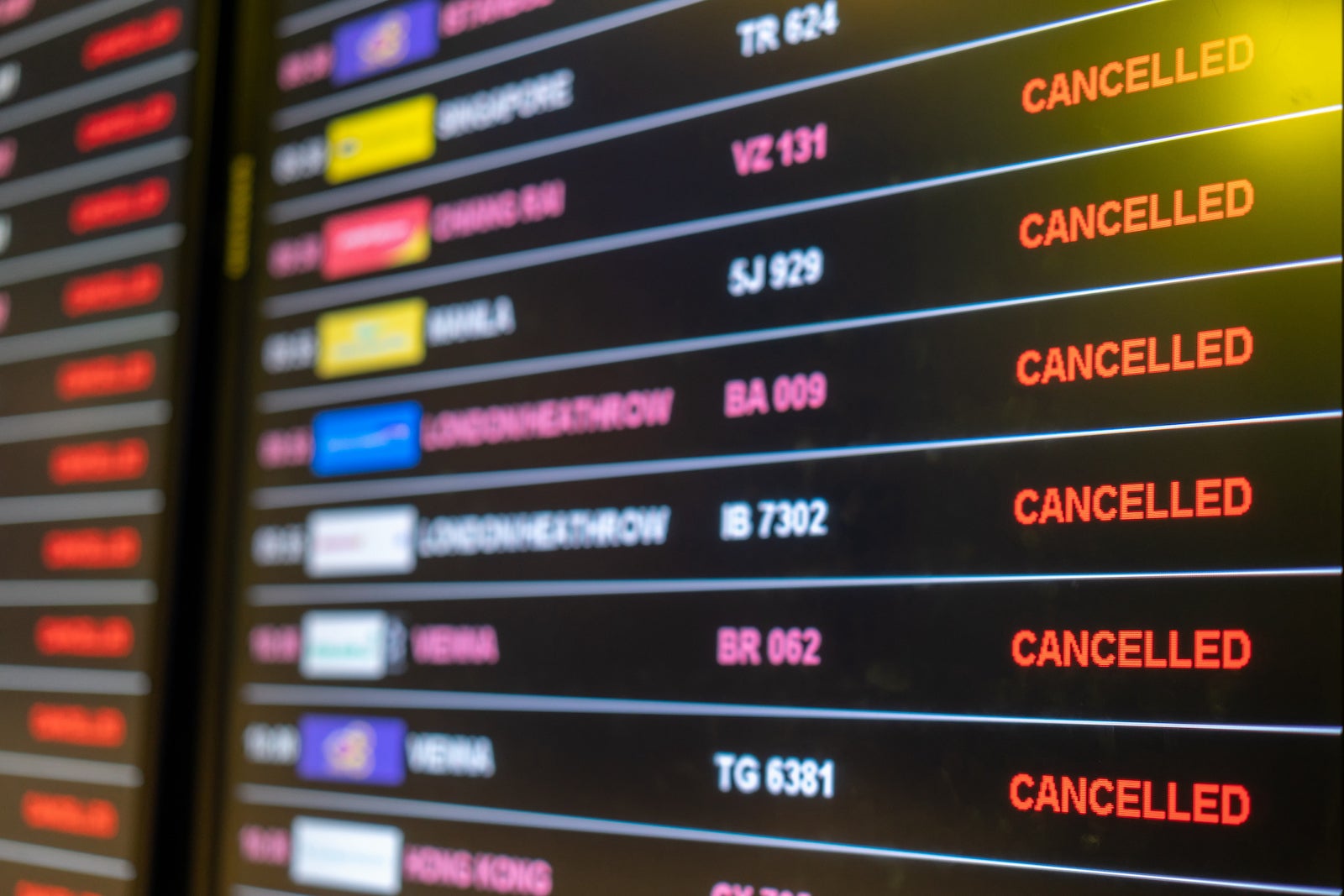Airlines canceled or delayed thousands more flights Tuesday as they continue to dig out from a weekend meltdown and as Mother Nature continues to be uncooperative.
Widespread flight disruptions led to more than 17,000 delays nationwide Saturday and Sunday, according to data collected from FlightAware. While far fewer, the number of cancellations wasn’t great either: Nearly 2,000 flights were scrapped over the weekend. Another 2,000 flights were canceled Monday, along with delays of more than 8,800 flights.
So far on Tuesday, there have been nearly 1,000 cancellations and another 2,000 flights delayed. The worst-impacted airports today are Newark Liberty International Airport (EWR) and Chicago O’Hare International Airport (ORD).
In fact, the Federal Aviation Administration warns that low clouds and thunderstorms could further affect airports across the country later Tuesday.
Delta Air Lines has issued a weather waiver for the New York region through June 28. Other airlines may similarly be willing to help you rebook if you are worried about your upcoming flights.
Be sure to see our complete guide to what to do if your flight is delayed or canceled here.
The good news is that things have improved since the weekend after a mix of severe weather and an acute equipment outage in the Washington, D.C., area briefly shut down several major airports. It’s since been fixed. At one point on Sunday, most major airports in the Northeast were operating with a ground stop, halting departing traffic bound for these specific airports.
As we’ve seen time and again, even a short pause in operations is enough to bring an airline to a halt these days. The good news is that no single airline is in full-blown meltdown mode, and delays seem far more abundant than cancellations.
Meanwhile, the blame game continues over who is at fault.
Sign up for our daily newsletter
United Airlines said the FAA holds much of the blame. CEO Scott Kirby said thunderstorms wouldn’t normally lead to such a domino effect on other flights. He said the FAA cut the number of flights into and out of Newark over the weekend, compounding the problems. “I’m also frustrated that the FAA frankly failed us this weekend,” Kirby wrote in a letter to employees obtained by The Points Guy – thanking them for working under the extreme conditions. The Wall Street Journal first reported on that memo.
Kirby says he will talk to the FAA and the Department of Transportation about preventing similar incidents this summer.
On Sunday, FlightAware data showed that the four biggest U.S. airlines delayed between 35% and 40% of their flights but canceled just around 5% of their operations. Airlines largely build their schedules assuming there will be good weather, so any disruption is bound to throw off a perfectly planned schedule.
Since the coronavirus pandemic began, airlines have had trouble recovering from even the smallest disruption in a localized part of their network. This weekend, major metro areas were experiencing bad weather, but no carrier has suffered a large-scale meltdown yet.
While it’s certainly possible that operations might get worse this week (and later this summer), carriers have had a few years to prepare for what’s poised to be one of the busiest summer travel seasons on record.
Despite warnings of longer-than-usual hold times, airline call centers were faring better than expected on Monday, given the irregular operations. American Airlines offered callbacks within 36 to 50 minutes, and Delta quoted a 56-minute hold. Top-tier elite flyers have been able to get in touch with representatives immediately, TPG tests showed.
Perhaps the biggest issue this summer is that getting rebooked could take days when things go wrong. Flights are operating with record load factors, so there simply aren’t many seats available for rebooking.
For instance, Sunday’s slew of cancellations in popular routes — like New York to Chicago and New York to South Florida — caused most flights to sell out until Wednesday. Any remaining seats were only available for walk-up fares topping $1,000 in some cases.
Without any spare seats available, some flyers, especially families with multiple travelers, are also finding that it’s taking a few days to rebook.
For now, all eyes turn to the upcoming Fourth of July holiday weekend, which could be the busiest of the entire summer travel season.
United Airlines that nearly 5 million people are expected to fly with the carrier between Friday, June 30, and Saturday, July 9. Bookings are up about 12% from last year and are nearly equal to pre-pandemic levels.
Friday, June 30, will be the busiest day to fly with United — more than 500,000 customers are expected to take to the skies with the airline that day.
Additional reporting by Clint Henderson.
Related reading:
